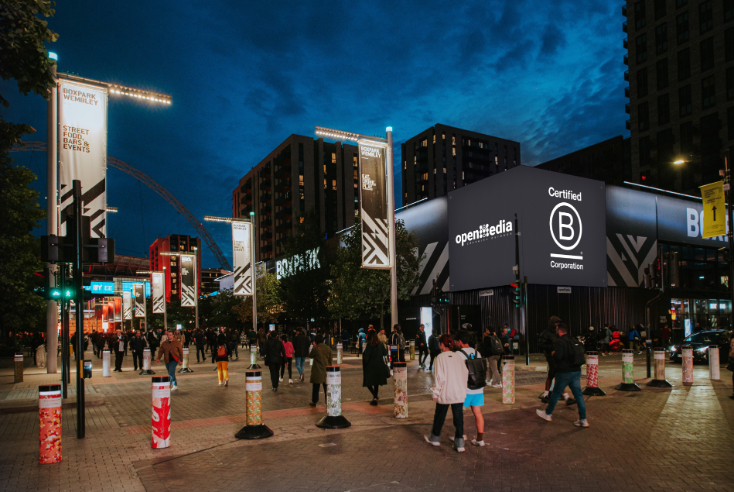Consumers demand clear commitments on when and how you will get green

Opinion
It is paramount that the industry collectively introduces a commitment to verify green credentials independently.
Sustainability is one of the focuses of 2023 for The Media Leader and a strategic objective for many organisations across the industry.
What makes sustainability compelling is to achieve the aims of the Environmental, Social and Economic pillars, both individual and collective effort is required; an individual effort from companies and employees working in parallel with the collaborative effort of the industry.
In my article, “Sustainability is a focus, now what? Three things you can start today”, I outlined key steps senior leaders can begin to effectively embed sustainability as a programme that is impactful for the company, people and the planet.
Let’s shift our focus to what the collective can do to achieve sustainability in the media industry. I will outline the blueprint of three ways sustainability in the media industry can be achieved and provide examples and comments from industry peers.
Sustainable supply chains
Sustainable supply chains deliver sustainability across all three environmental, social and economic pillars. Ensuring sustainable supply chains are a standard also creates a representative, responsible and resilient industry. From ‘The Great Resignation’, the ‘Cost of living Crisis’, inflation, layoffs, and other environmental factors, the industry feels the impact of an unstable economy. Sustainable supply chains aid in future-proofing the industry while mitigating risks.
One company leading the way in sustainable supply chains is ITV. The broadcaster has committed to having 100% sustainable supply chain with targeted support to smaller suppliers to improve environmental impact by 2030.
How can the industry approach this? By having an industry-wide standard and charter signed by all companies, committing to a 100% sustainable supply chain at a date of their choice.
Sustainable productions
Producers have the increasingly impossible task of balancing budget constraints, resourcing, the aftermath of Covid-19 and now sustainability considerations. Starting with sustainability in mind is a shift from the past. However, it shouldn’t be the role of the producer alone to grapple with. While all productions are unique, there are consistencies expected, such as location, travel, food, equipment, and technology, that can be green across the industry.
For example, only flying with airlines that demonstrate a commitment to reducing their carbon footprint and using shared vehicles or public transportation where possible are practices to adapt. Additionally, investing in equipment and technology that produce fewer emissions and energy consumption when replacements are required can create more sustainable productions.
Using 100% recycled paper and limiting paper use altogether by using digital tools for processes like storyboarding, call sheets, etc, are further collective small steps toward greener practices in production that will yield sustainable results.
Green credentials
In 2021’s The Rise of Sustainable Media report by Dentsu and Microsoft, 88% of those surveyed agree that they will have more trust in brands with their green credentials verified independently. Trust in the objectivity and independence of media—another one of core focuses of The Media Leader‘s coverage in 2023—continues to be complicated.
Therefore, it is paramount that the industry listen, and collectively introduce a commitment to verify green credentials independently. Companies will be at different ends of the spectrum, which is okay. Consumers want a transparent and verified commitment to being green with an end date.
Companies like Media Bounty and Open Media have proudly announced their B-Corp certifications. There are many certifications available; what is key is the credentials that require companies to demonstrate the impact of sustainability in their organisations.
 Sabrina Clarke is managing partner of Build Global, a boutique strategy consultancy. She specialises in consultancy around strategy, transformation and sustainability.
Sabrina Clarke is managing partner of Build Global, a boutique strategy consultancy. She specialises in consultancy around strategy, transformation and sustainability.




